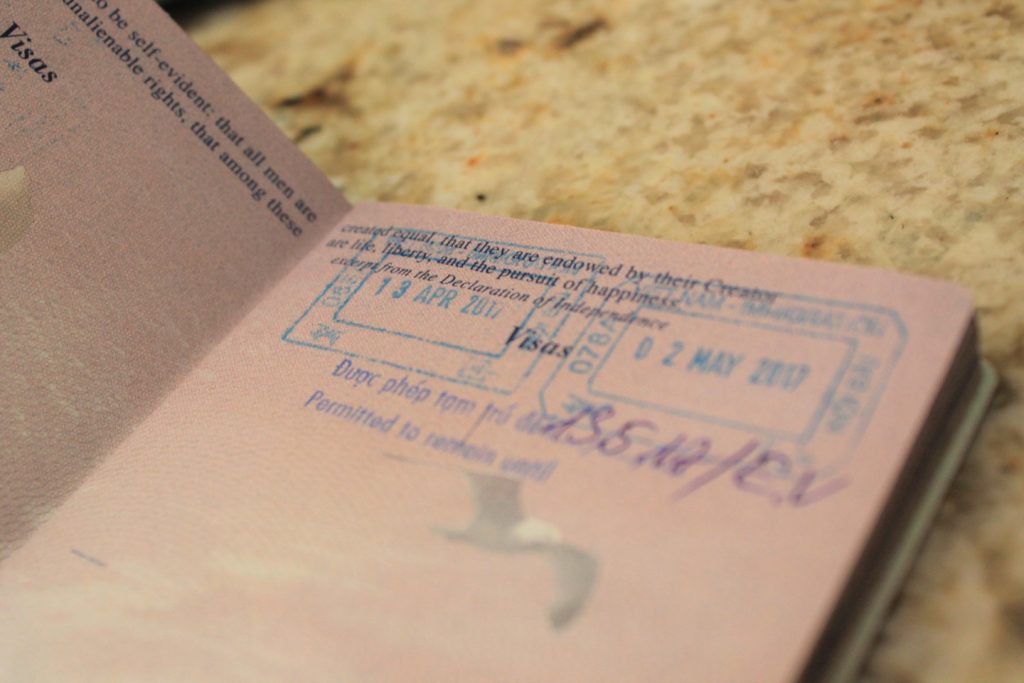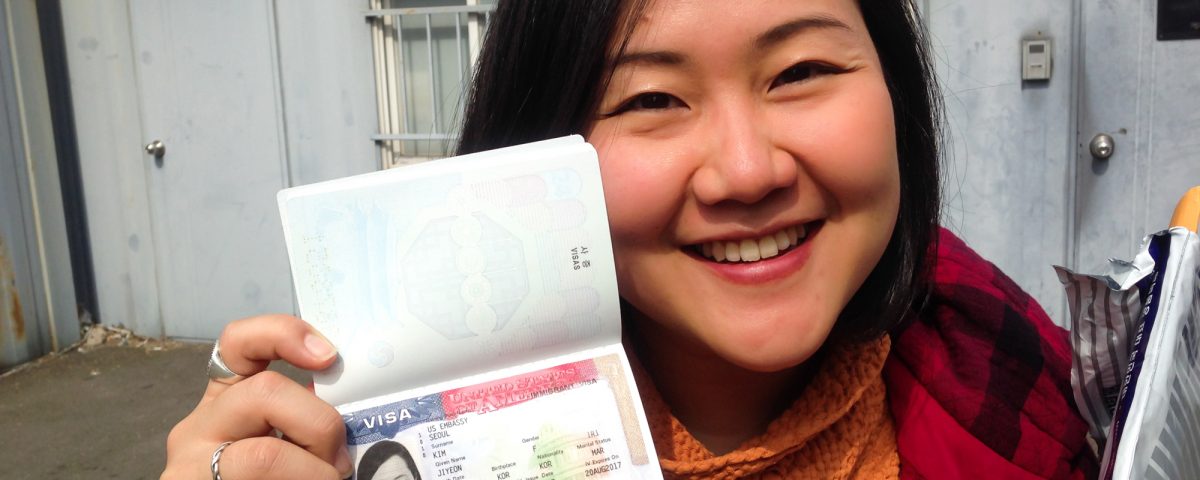
Ten things you might not know about life as an immigrant
Immigration seems to have been on the agenda in every single recent election. It’s an issue that really divides people – whether it’s good or bad for a country, how easy it really is to immigrate, and how to manage it.
I've been an immigrant for the majority of my adult life. Here are things I've learnt from the experience, which could help shed some light on what being an immigrant really means.
1. Being married doesn’t always help you to live in the same country.
I’m from the States. My husband is English. In spite of the ‘special relationship’ between our countries, this is a problem. We’re not allowed to live in either country at the same time, unless we’re under a visa waiver programme, are tourists, or have residency permits.
Visa waivers last 90 days. Residency permits take stress, endless paperwork, proof that we’re in love, thousands in fees, and years to complete. Don’t believe me? Keep reading.
So we decided to live abroad, in places where we were both subject to the same visa rules.

I don’t get the tax breaks you’d usually get for being married because my husband isn’t a citizen of the United States. Both our immigration records include notes that we should be asked more questions at the border because we’re married to a citizen. We are separated temporarily right now, me in the US and him in the UK. We chose to spend three weeks in Vietnam in part because we knew we could be together.
2. Money matters much more than it should
Did you know that you can purchase a passport in some countries? That is, if you happen to have a lot of cash lying about. Recently my own government was accused of selling access to the US Green Card programme for just $500,000 in China.
It’s actually an official programme called the EB-5 visas. Those who apply need not worry like the rest of us about a criminal record or health problems. Who knows how many Green Cards are being bought already?
Those who fall in love with a foreigner face serious financial difficulties in the US and the UK. In the UK, you need at least £18,600 to bring a spouse over – more than 43% of the population (and 55% of women) could come up with according to recent research. Every child that is part of the family ‘costs’ an extra £2,400 per year.
If you’re disabled, unemployed, or even a war veteran, you can’t use your public funds to prove you have enough money for the right to family life.
3. Immigration can make you sick.

Shingles. April 2015. I got so stressed out by the Chinese visa process that the Varicella virus dormant in my spinal cord since preschool burst forth on my forehead, scorching scars and leaving a trail of nerve damage in its wake. Let me tell you, there is a reason they call shingles ‘hellfire’ in many Scandanavian languages.
Immigrants are more likely to suffer from anxiety and depression. Not being covered by health care available to local citizens can take its toll. Many suffer from insomnia because of the stress of the application process, too.
4. Health exams are still common (and pretty invasive.)
When I taught my students in China about Ellis Island, a former immigration station to enter the US from New York Bay, they were universally horrified that a health exam was required to enter the USA. I sputtered. The next day I brought part of my immigration records for China… including the health exam I had to take.

At Ellis Island, you had about six seconds to prove you were healthy and fit for work. In the suburbs of Shanghai, we spent two hours undergoing a full physical, an exhaustive questionnaire about mental and physical health, a blood workup, a chest X-ray, and an abdominal ultrasound. Both health exams are awful, and most people who’ve never applied to work abroad don’t realize that this is still a requirement.
5. It’s not as simple as just 'filing the paperwork'.
Paperwork should be straightforward. But immigration paperwork definitely requires a lawyer – or at least lawyer’s eyes. A single stray mark or the wrong colored pen and your application could be rejected. I had stress dreams about checking a single box incorrectly in an application form and spending weeks or months separated from my husband.
On the upside, immigration has turned me into a more organized person than I’ve ever been in my life. Some files that couples create for their spousal visas are more than 1000 pages long, with love letters (on paper – Facebook doesn’t count), photographs, tax documents, and interview transcripts.
It’s a huge undertaking – and the uncertainty of the whole thing makes it feel less like ‘ticking some boxes’ and more like jumping into unknown, freezing waters.

6. Catch-22s are everywhere.
‘So what’s your husband’s Social Security Number?’
‘He can’t have one yet, since he’s not a resident.’
‘Well, I can’t add him to the bank account without one.’
‘Ummm, but we can’t apply for residency until we have a shared bank account.’
‘Ummmmmmmmmm…’
You must have a job to live in the country, but to get a job you need to be in the country for the interview. You must have enough money to live in London, but you must not work more than 20 hours per week. You could be trained for a degree by a top university in the country (as long as you’ve paid your astronomical student fees), but are required to leave before your graduation ceremony.
….Seriously?
7. What other people vote for has a direct effect on your rights.
Trump. Brexit.
8. It takes years to immigrate.
A fellow nomadic travel blogger from Korea, Runaway Juno, just received her immigrant visa to the USA. She posted a picture herself with the page-sized sticker in her Korean passport, smiling with relief after waiting for 14 months of applications and processing to join her spouse.
But it’s still not over – once she passes her final border interview and moves to the US, she still has to fulfill a whole range of other requirements before she can be secure in her status.

My husband and I spoke to a lawyer in Boulder, Colorado about our situation after we got engaged. She said that although we could apply from outside the US, it would take about 18 months to receive the Green Card.
The length of time you’ll have to wait is unpredictable and variable. And then you're suddenly faced with a scramble for the right documents when the email comes down demanding them right f*cking then or the whole thing is off.
9. ‘Permanent Residency’ is not the same as citizenship, and isn’t always permanent.
In both the UK and the USA this year, several groups of ‘permanent’ residents were told that they could not re-enter or leave the country, or that they should make plans to leave. Some, such as EU spouses who’ve lived in the UK for 20+ years, have no other place to go back to. A few such examples:
- Haitians, allowed to remain or move to the US after the massive earthquake in 2010 (and those who arrived long before then and/or have citizen children), are on the block to be deported under Trump.
- Green Card holders had their right to stay called into question hours after Trump’s first executive order on immigration. Some were pressured until they signed away their cards.
- 92,000 applications for permanent residency on behalf of EU nationals were filed in the UK in 2016. The government is now urging people not to apply until they sort out their system ( it’s an 85 page application form at the moment).
- Two months ago the UK government deported a grandmother who had lived in the UK for 27 years. She was sent ‘back’ to Singapore, where she no longer has family nor work. Her disabled husband cannot join her.
- Immigration officials in the US sometimes deport permanent residents, including those with protected status under DACA, too quickly for anyone to prevent it. In one case, three hours. It’s illegal, but that doesn’t mean it doesn’t happen.
Even if you follow all the rules, permanent residents do not have voting rights in most districts. They cannot leave the country of their residency for periods longer than six months or less. They are required to check in with immigration officials and any minor infractions may result in issues. They still have to go through separate immigration lines in many airports, away from family.
10. Immigrants also look like me.

I tell my family who are against immigration to imagine my face when they’re standing in the ballot box. I tell them to picture me every time someone uses the word ‘immigrant’ in a political rally.
I do this because of the sneaking suspicion that they don’t know any immigrants, or that they don’t realise that my family (their family) is directly impacted by their choices in elections, because we’re immigrants ourselves. They think of immigrants as ‘others’, people who look nothing like them.
But immigrants look like people from every place on earth – because they are.
There more than 300 million of us (60 million of whom are refugees); more than there have been at any other time in human history.
Scattered around the world, the immigrant population is almost as large as that of the United States.
I think humans are adventurers by nature. We left our origins and spread around the world long before immigration papers and passports were even a thing.
Metaphorically speaking, our ‘nation’ of immigrants isn’t going anywhere. Literally, we will keep on going everywhere. Talk to us. Seek us out. Connect with us. If necessary, defend us. You never know when you may have to join us. Don’t worry. There’s lots of space.
This piece was originally published on Coleen's blog, Reverse Retrograde – take a look!



